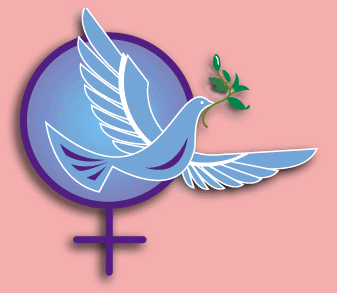There has been a large participation of feminists in European Left’s Summer University, that took place in July 23-27 ner Berlin.
EL-Fem, the party’s section about Feminist policy, hosted 4 workshops, in cooperation with women’s organizations and activists from all over Europe:
- Genderday: Feminizing of class-struggles – feminist resistance
Women from Greece, Poland, Ukraine, Denmark, Austria, Germany, Finland, Spain and even more countries report
in words and pictures from their struggles. First meeting, listening, inquiring, exchange of experiences, reflection.
Moderation: Sonny Beyer, Katerina Papatheodorou
- Not only left but also feminist alternatives
Content: To (better) understand feminist economy and its political implications for here and now and a left
transformation-strategy. Käthe Knitter, author; Moderation: Birge Krondorfer
- Women in social crisis and war: Feminist perspectives on war and peace
Aurélie Royon, Mouvement de la Paix, France ; Irina Golubieva, peace-activist, Odessa, Ukraine
Aphroditi Stampuli, Syriza, Member of the Greek Parliament ; Mirjana Kucer, Women’s and human rights activist
from Croatia; Moderation: Christiane Reymann
- Conference of EL and el-fem: Women’s resistance against the Troika-politics and the feminization of class struggles
Irina Alexova, National Committee Bulgarian Left; Irina Golubieva, peace-activist, Odessa, Ukraine; Alba Teresa
Higuera Buitrago, Columbia, exiled in Spain, human-rights activist; Justiyna Chrapowicz, Poland, trade-unionist
Maria Gassouka, Associate Professor in Folklore and Gender of University of the Aegean, Greece; Paloma Lopez,
Spain, United Left MEP; Maite Mola, Vicepresident EL; Moderation: Hilde Grammel, Cristina Simò
Read Afroditi Stampouli’s speech, that was presented in the workshop about “Women in social crisis and war: Feminist perspectives on war and peace”
Dear comrades,
Thank you for the invitation to participate in today’s discussion representing the women of Greece, who are suffering from a social crisis unprecedented in peaceful times and who are organizing their resistance demanding a way out of it.
The attack against the lower classes in Greece that has already had a cost in human lives, as suicide rate has raised by 24% for men and by 122% for women. According to a recent study of Lancet magazine, life expectancy has already fallen by 3-4 years not only because of the deterioration of health care system starting from intensive care, but because of general degradation of life standards, as well. Infant mortality that had kept decreasing for years has started rising since 2010 and is already higher than the eurozone average. In 2012 there were 12300 births less than deaths, as birth rate was 9 births for 1000 residents. However this situation does not consist a state of war.
Riot police have never stopped their rude attacks to any protesting people, although no huge manifestation has been performed the last 2 years. Secondary school teachers, school guards, municipal police men and women, cleaning ladies and especially photo-reporters have been hospitalized for broken arms, legs and heads, or suffocated by teargas and only by chance there were no deaths. Despite all that, nobody would claim that there is a war between citizens and the police in the streets of greek cities.
The dramatic increase of violence against women during the last years is another example of a gender war-like situation that is worsened by the crisis. During 2 years (11/3/2011 to 11/3/2013), the General Secretariat of Gender Equality’s emergency number, that provides socio-psychological support and counseling to women victims of violence, has received 10176 calls, most of them reporting domestic violence. Known that women who face serious financial issues, as unemployed women, women precariously or partially employed, immigrant women have more difficulties in speaking out about their problem and even more in reacting, the real number of women-victims of violence remains unknown. There is a running EU program creating support and reception structures for women-victims of violence and their children. The function of those structures will be seriously questioned at the end of 2015 when undertaken by local authorities, since the memorandum observatory imposes rigorous cut to their budgets. Even those facts do not consist a state of war either.
However, what is happening in the eastern borders of Greece –the eastern borders of Europe, Fortress Europe- against victims of real wars going on nearby, indeed looks like an undeclared war. In 2012 an 11-km-long fence has been constructed along the only land border with Turkey, in northern Evros area, that used to be full of landmines until a few years ago. The fence cost 3,5 million euros to the national budget plus 1,5 million from national and European funds for monitoring equipment. Since then the main migration flows have moved to the less deep passages through Evros river and mainly to the Aegean sea. Illegal push-backs, covered by Frontex’s guilty silence and co-financed by EU with much larger funding than the one allocated for people entitled to international protection, have cost the lives of hundreds of refugees. Most of them were women and children originated from Syria, Afghanistan and Somalia in a large percentage. In many cases greek coast-guards’ brutality has been completed by the patriarchal perception of women and children being better protected in the cargo hold. The same patriarchal perception has stopped greek authorities from accusing any surviving woman of being a trafficker, as they always do against someone male survivor, even an under aged one.
In addition to that, immigrants and refugees face the open war of the neo-Nazi gang of Golden Dawn who had murdered at least five immigrants and beaten or abused hundreds of them, before some of their members being prosecuted for the murder of a young Greek anti-fascist rapper. Thirty two (32!) cases have been delivered to the prosecutors by the minister of public order Dendias, who never explained why he had kept them in his drawer up to then, or why in the most of the cases the victims found without papers had been arrested to be deported. He has never explained either how the police could achieve to detect less than 10 cases of women’s trafficking aiming to sexual exploitation during the last 24 months, although the residents of several districts in Athens and other cities become every day witnesses of one of the cruelest forms of violations of the victims’ rights directly related to their gender, and although 100000 of immigrants have been arrested in the same time period during pogrom type controls and 7000 of them found without papers have been imprisoned in detention centers under conditions equal to torture. European Left Party should do anything to end this disgrace.
I have to refer to the evolution in Cyprus, where an invasion of the Turkish army following a coup d’etat by the greek junta lead to a 40-year-long occupation of 40% of the island and the separation of 250.000 refugees, belonging to both communities, from their homes. The massive rapes and the tragedy of women, relatives, especially wives of missing men stayed under an undetermined civil state until the authorities decided to open the mass graves and identify the bones inside them, has obvious similarities to what we know about ex-Yugoslavia.
It is worth mentioning as often as possible that United Nations’ resolution number 1325, adopted 14 years ago, requires the participation of women’s organizations in peace talks. A common committee called Gender Advisory Committee was formed in 2009 by activists and scholars Greek-Cypriot and Turkish-Cypriot women, who are demanding their participation according to this resolution. In 2010 they were in touch with a UN special envoy, however they have not been invited to participate neither in that negotiations circle nor in the next one that is still running. As a result negotiations about equality concern the equality between the two ethnic communities, but not gender equality and references to human rights ignore gender-based rights. The immediate implementation of UN’s 1325 resolution in Cyprus negotiations and in any other case can become a demand of EL-FEM and of the European Left party.
Greek women and feminist organizations of left orientation participate vividly in actions supporting refugees, trafficking victims and victims of gender related violence. Also they maintain solidarity relations with women’s groups from neighboring countries through women’s departments of leftist parties or with help from umbrella organizations such as the World March of Women. A special importance has always been given to relations with women’s collectives in countries whose governments were in dispute with Greek governments at the time. The Balkan Caravan for the European Social Forum in Istanbul in 2010 and the participation in the recent Peace Event in Sarajevo for the 100 years anniversary of the 1st World War are good examples. There is a permanent visible presence of women’s organizations in any peace demonstration, of which the last was against the war in Ukraine, but the crisis adds financial difficulties to the already difficult intervention of women’s collectives to conflict zones, as they did in the past in ex-Yugoslavia and Palestine, where the Association of Palestine’s Greek Women has important action, too.
I will finish with the legendary cleaning women of the Ministry of Finance, who traveled a few days ago to Crete to participate in the blockade of the Nato naval base in Souda, against the hydrolysis of the Syrian chemicals in the Mediterranean sea. This is an emblematic example combining violations of workers’ rights, social crisis, war, threat of environmental disaster and women resisting to all that, in the same time questioning the social roles imposed to them by patriarchal stereotypes that they used to accept until recently.
Afroditi Stampouli





